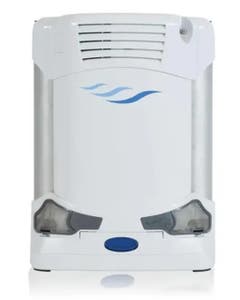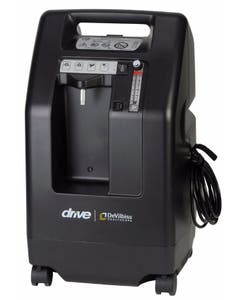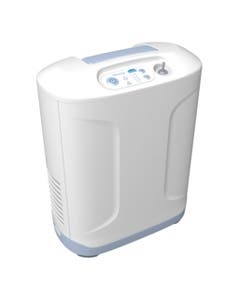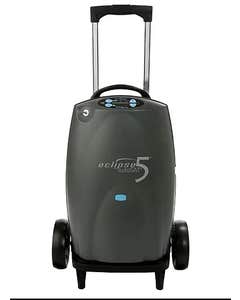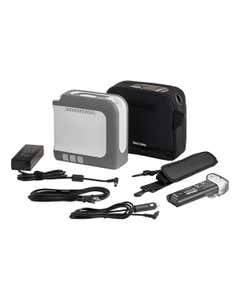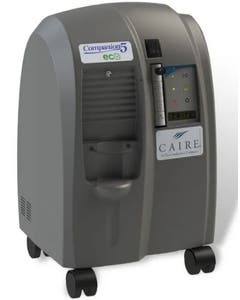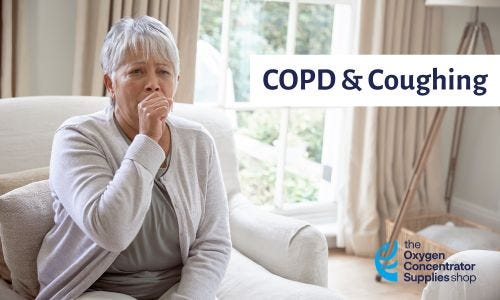

What is the Difference Between a Bad Cough and COPD?
While we all may experience a bad cough, it is not the same as the cough of COPD. The cough of COPD is ongoing, often lasting for weeks or longer. This persistent cough will also be more productive as your body attempts to clear your airway of irritants that do not appear to go away. The clearing of mucus and other irritants is beneficial in helping you breathe better, so coughing isn't always necessarily a bad symptom.
Relationship Between COPD and Coughing
In the case of COPD, your cough is your natural defense mechanism against the disease. Although frequent coughing can be annoying, it can be useful in some ways to alleviate other symptoms of COPD. Doctors may teach you how to cough properly to clear mucus effectively. However, if a cough becomes so common that it interrupts daily life, then your doctor may explore remedies.
What are the Symptoms of COPD?
The symptoms of COPD include:
- A tightness in the chest
- Shortness of breath, especially when doing a physical activity
- Wheezing or a whistling sound when breathing
- A chronic cough that is highly productive
- Constant respiratory infections related to COPD
- Fatigue
- Weight loss
What Causes a Chronic Cough in COPD Patients?
COPD patients are very familiar with the act of coughing. That's because the cough of COPD patients is the body’s efforts to clear irritants from the airway. These irritants can include airborne pollutants from the outdoors or a polluted indoor environment, allergens due to weather, or as a reaction to a respiratory infection. If you find yourself coughing more than usual, these events are referred to as flare-ups and can lead to intense coughing that needs to be treated.
Treatments for COPD Cough
Bronchodilators
Bronchodilators ease the inflammation in the lungs and help make breathing easier. They can be especially helpful for COPD patients during flare-ups. This type of treatment can be delivered via an inhaler or nebulizer. Nebulizers work quickly and efficiently to deliver medication as a fine mist to help you feel better fast.
Oxygen Therapy
Oxygen therapy may help patients who have low blood oxygen saturation. Oxygen therapy is more likely to be used for more severe cases of COPD. Regular oxygen therapy may also help alleviate a chronic cough associated with the disease. Oxygen therapy can be delivered via an oxygen concentrator, offered as both at-home or portable devices, so you always have the tools you need to alleviate your COPD and coughing symptoms.
PEP & OPEP Devices
Oxygen therapy may help patients who have low blood oxygen saturation. Oxygen therapy is more likely to be used for more severe cases of COPD. Regular oxygen therapy may also help alleviate a chronic cough associated with the disease.
Controlled Coughing
The chronic cough of COPD is a natural and effective means of clearing the airway. Doctors may instruct patients on how to cough properly to make it more effective. Controlled coughing involves folding the arms across the stomach and breathing slowly through the nose. This technique can help expel mucus effectively from deep within the lungs and may help resolve continuous bouts of coughing.
Ways to Calm COPD Cough


Stop Smoking
Quitting smoking is one of the best choices you can make to reduce coughing for COPD and for your overall health. Smoking not only dries our your airways, but also produces irritants. Both of these things only make COPD coughing worse.
Stay Hydrated
Staying hydrated helps thin out the mucus in the airway, making it easier to expel through coughing. Drink plenty of water every day to alleviate the urge to cough.
Use a Humidifier
Humidifiers can add more moisture to the airway which can reduce irritation in the airway and nasal passages and make it easier to expel mucus. The soothing effect on the nose and throat can be even more enhanced with adding a few drops on menthol in your humidifier.
Drink Warm Honey Tea
Warm drinks like honey tea can soothe the airway and thin mucus. Warm honey tea in many instances has been shown to be just as effective as many medications for soothing a COPD cough. Add some honey into a warm cup of tea for instant cough relief.
Stay Upright
Lying down can make a COPD cough worse as your body has to work harder to expel mucus from the prone position. Try to sit upright, allowing your body to expel mucus and reduce coughing more effectively.
Control Your Cough
Your doctor can teach you about controlled coughing, which can be effective for reducing the intensity of coughing during flare-ups. Controlled coughing assists the body in expelling mucus, rather than trying to suppress the cough.
See Your Doctor
Your doctor has a better understanding of your COPD severity and treatment. Doctors may recommend controlled coughing, medications, oxygen therapy or even home remedies to manage a chronic cough most effectively.
Conclusion
If you or someone you know suffers from both COPD and coughing, it's important to keep up with your treatment to help you continue living an active life. The Oxygen Concentrator Supplies Shop offers hundreds of products that promote successful oxygen and respiratory treatment. If you have any questions or would like to learn more about any of the items we offer, please give our expert staff a call at 888-941-1688 today!



